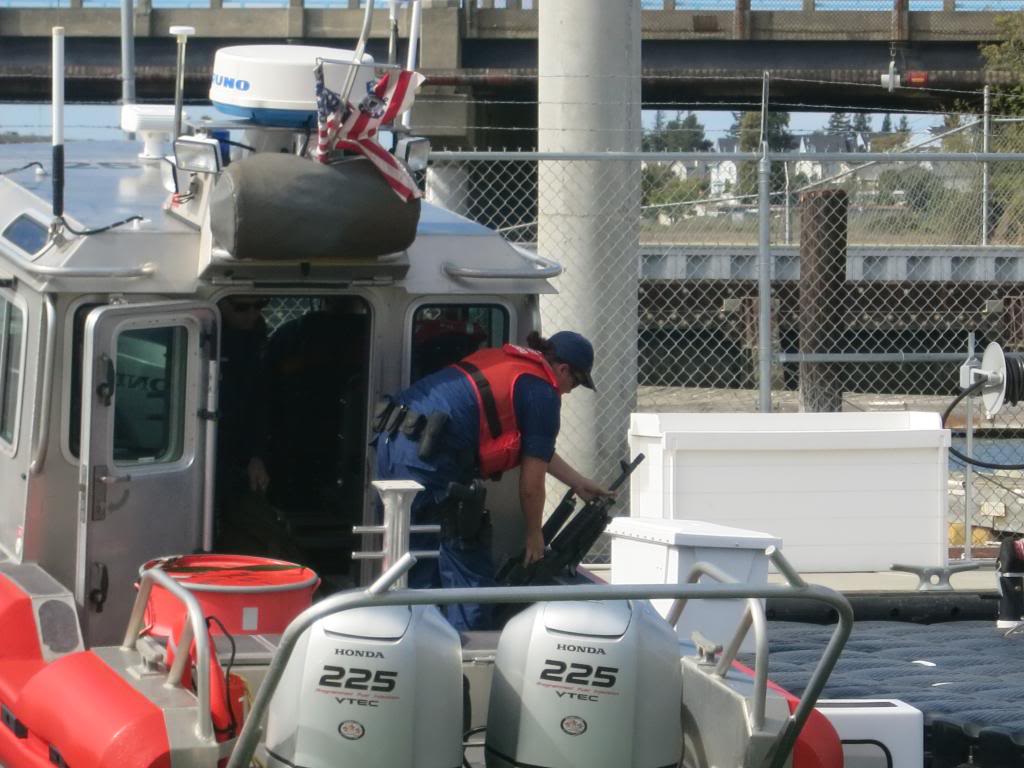Alaskan Sea-Duction
Guru
- Joined
- Jul 6, 2012
- Messages
- 8,056
- Location
- USA
- Vessel Name
- Alaskan Sea-Duction
- Vessel Make
- 1988 M/Y Camargue YachtFisher
I don't dispute the lawyers facts...but when I first read it it seemed to suggest the USCGAUX was a bit more than it is.
Unfortunately for every great auxiliarist there are 10 blowhards7 and for every great flotilla there's a few too many old boys clubs.
Not sure the USCG is any more or less military than ever, just with the perceived threats after 911, armed patrols became more heavily armed.With the full-time militarization of the USCG when it was became a part of the Department of Homeland Security, I wouldn't be surprised if the Auxiliary has become less relevant to the Guard. Is this so?
even their "safety inspection" wont stop a boarding by the real CG

So I'll step in here.
As members of the department of Homeland Security all active duty members of the USCG are considered to be federal Law Enforcement Officers. For example my daughter in law can concealed carry in all 50 states. She is again a Law Enforcement Officer..
Coast Guard may be recognized or declared as LEO but they are far from being LEOs. They lack the training and frankly their powers end on land because that's where the posse comitatus act prevents them from acting as LEOs since they became part of the DOD instead of the DOT. The exception to the act is only for the waters.
Maybe not.True LEOs do not consider the USCG as brothers. They just don't meet the criteria.
Maybe not in your experience..and maybe not from all local yokles..but many of my friends and LEO brothers are from all sorts of law enforcement.True LEOs do not consider the USCG as brothers. They just don't meet the criteria.
True LEOs do not consider the USCG as brothers. They just don't meet the criteria.

Law enforcement is absolutely forbidden to the point that an active LE individual can not represent the auxiliary do to conflict of interest issues.
Does that mean active LEO's cannot be and USCG auxiliary member?
Later,
Dan
